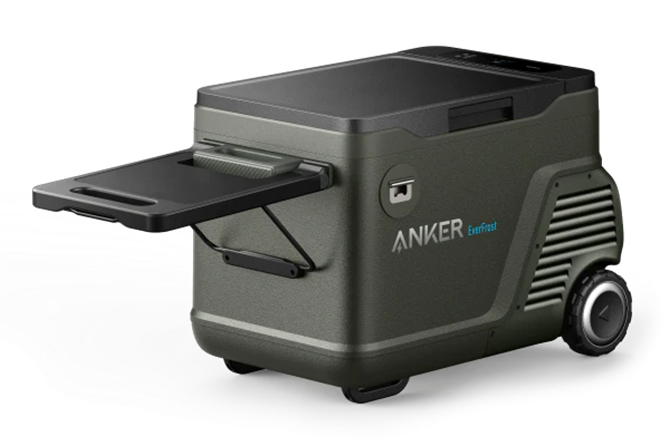
Doctors, Scientists, & Engineers – Oh My! Changes to Federal Rule 702 are Likely Coming
Overview | Blog Posts | Subrogation & Recovery | Scott Hefner | Related | Print | Share
March 30, 2022
Federal Rule of Evidence 702—Testimony by Expert Witnesses—was promulgated in 1975 when Congress first enacted the Federal Rules of Evidence. Original Rule 702 simply stated that “[i]f scientific, technical, or other specialized knowledge will assist the trier of fact to understand the evidence or to determine a fact in issue, a witness qualified as an expert by knowledge, skill, experience, training, or education, may testify thereto in the form of an opinion or otherwise.”
Rule 702 remained unchanged until 2000 when it was amended to reflect the more rigorous and structured approach the courts applied to expert testimony in the aftermath of the Supreme Court’s landmark decision in Daubert v. Merrell Dow Pharmaceuticals, Inc., 509 U.S. 579 (1993). Among other things, Daubert held that Rule 702 established a standard of “evidentiary reliability” as a prerequisite for the admissibility of expert scientific testimony. The 2000 amendments were intended to codify the Court’s holding in Daubert and other related opinions that followed and relied upon Daubert. The 2000 Amendments added several subsections to the rule with the aim of ensuring expert opinions are reliable and provided as follows:
Rule 702. Testimony by Expert Witnesses
A witness who is qualified as an expert by knowledge, skill, experience, training, or education may testify in the form of an opinion or otherwise if:
-
-
- the expert’s scientific, technical, or other specialized knowledge will help the trier of fact to understand the evidence or to determine a fact in issue;
- the testimony is based on sufficient facts or data;
- the testimony is the product of reliable principles and methods; and
- the expert has reliably applied the principles and methods to the facts of the case.
-
For the first time since the 2000 amendments, Federal Rule of Evidence 702 is poised for substantive changes. The Advisory Committee on Evidence Rules has been contemplating amendments to Rule 702 for over four years. On May 15, 2021, the Advisory Committee unanimously approved the following amendments to Rule 702:
Rule 702. Testimony by Expert Witnesses
A witness who is qualified as an expert by knowledge, skill, experience, training, or education may testify in the form of an opinion or otherwise if the proponent has demonstrated by a preponderance of the evidence that:
-
-
- the expert’s scientific, technical, or other specialized knowledge will help the trier of fact to understand the evidence or to determine a fact in issue;
- the testimony is based on sufficient facts or data;
- the testimony is the product of reliable principles and methods; and
- expert’s opinion reflects a reliable application of the principles and methods to the facts of the case.
-
The accompanying Committee Note indicates the proposed amendments have two primary purposes. First, the rule has been amended to clarify and emphasize that the admissibility requirements of subsections (a) through (d) must be established to the court by a preponderance of the evidence. While the preponderance of the evidence standard has always applied to Rule 702, the Advisory Committee found that many courts have declared the requirements set forth in subsections (b), (c), and (d) are questions of weight and not admissibility. The Advisory Committee also explicitly included the standard in the rule to dispel the notion that expert testimony is presumed to be admissible. There is no presumption that expert testimony is admissible. Based on its review of the case law, the Advisory Committee determined a “fair number” of courts found expert testimony admissible even though the proponent had not satisfied the preponderance of the evidence standard. The Advisory Committee considered that enumerating the preponderance of the evidence standard directly in the rule is necessary to avoid this problem in the future and to ensure uniform application of the preponderance of the evidence standard.
Second, subsection (d) has been amended to emphasize the court’s required gatekeeping function with respect to expert testimony. The Advisory Committee noted that the trial judge must exercise gatekeeping authority with respect to the opinion ultimately expressed by a testifying expert. The court must find that the expert’s ultimate opinion reliably flows from the expert’s methodology and is not an extravagant and unsupported claim. The ultimate aim of the amendment to subsection (d) is to empower the court to pass judgment on the conclusion that the expert has drawn from his or her methodology.
On August 6, 2021, the Judicial Conference Committee on Rules of Practice and Procedure approved the amendments for publication and sought public comment on the proposed amendments. The proposed amendments garnered wide-ranging interest from the bench, the bar, and the public, with over 500 written comments.
The practical implications of the amendments remain up for debate. Proponents of the amendments claim these changes are long overdue and are needed to get courts back on track related to their gatekeeping function. Proponents believe too many unqualified opinions are presented to the jury and the amendments will empower trial judges to exclude unreliable expert testimony.
Others believe the amendments are not a change at all. For example, the Federal Magistrate Judges Association does not view the amendments as a change and instead as “largely clarifying existing practice.”
Opponents of the amendments claim the changes will screen out even more expert testimony than judges are now excluding. Opponents also argue that expert challenges are already some of the most expensive and time-consuming aspects of the entire litigation process and the amendments will lead to costly mini expert trials before the trial judge, which will be expensive for clients and a drain on judicial resources.
Whether the Supreme Court approves the amendments as written or makes other changes remains to be seen. If the Supreme Court adopts changes to Rule 702, they are expected to take effect in late 2023.
For any further questions, please contact Scott Hefner.



